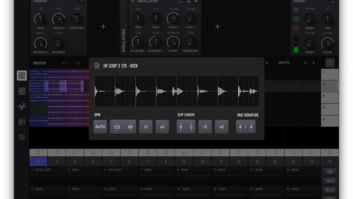Steve Jobs thinks the music industry should do whatever it takes to make Apple money. I mean, he thinks they should abandon copy protection. In a letter posted to the Apple Web-site, Jobs mused:
Imagine a world where every online store sells DRM-free music encoded in open licensable formats. In such a world, any player can play music purchased from any store, and any store can sell music which is playable on all players. This is clearly the best alternative for consumers, and Apple would embrace it in a heartbeat. If the big four music companies would license Apple their music without the requirement that it be protected with a DRM, we would switch to selling only DRM-free music on our iTunes store. Every iPod ever made will play this DRM-free music.
Imagine. It would be like… the world we have now.
As Jobs writes a bit later in his epistle:
“…these same music companies continue to sell billions of CDs a year which contain completely unprotected music. That’s right! No DRM system was ever developed for the CD, so all the music distributed on CDs can be easily uploaded to the Internet, then (illegally) downloaded and played on any computer or player.”
Wow. So what’s the problem? It’s not that Jobs is against DRM qua DRM, his beef is that it’s bad for his business. Fair enough, of course. He has to earn a living like the rest of us. But really, Jobs and Apple didn’t seem so down on DRM in their wrangling with the European Union.
Jobs’ main point is that the music industry’s business model discourages digital downloads and that by extension the music industry is being hypocritical (or paranoid).
No arguments here. But as Jobs himself admits, the consumer can get the take-anywhere experience from their music today. Just buy a CD and have your way with it – the resulting files you rip from that disc can be played on your computer, your MP3 player, your car stereo, etc.
If the music industry were smart, they could do some clever price tiering. Music without DRM could be sold at a premium – say $1.49 a song versus $.99 for a DRM-protected version. Justify the premium by saying that this music can be taken anywhere and played on any platform. That way, the music industry can continue to overcharge for Brittany Spears and test the market to see if DRM really is inhibiting growth.












